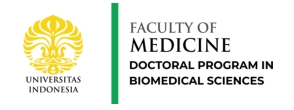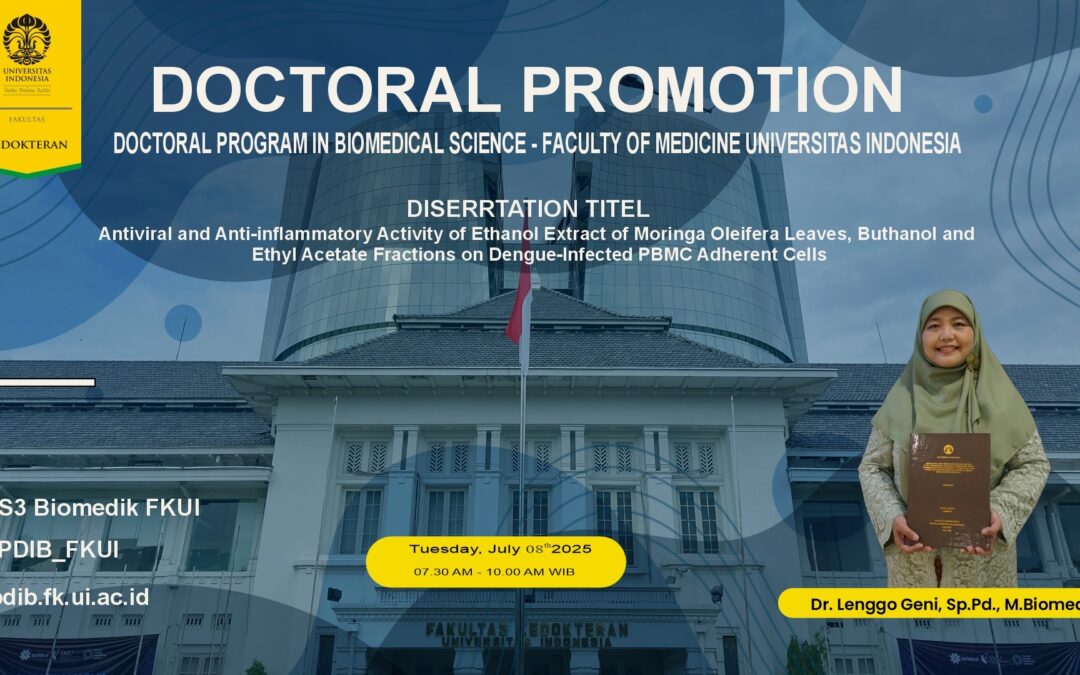Jakarta, July 4, 2025 – Dissertation research conducted by Lenggo Geni, a doctoral student in the Biomedical Sciences Program at the Faculty of Medicine, University of Indonesia, shows that Moringa oleifera leaves have potential as a dengue antiviral and anti-inflammatory agent. The results of this study are expected to significantly contribute to the development of Moringa leaf-based herbal medicines for dengue (DENV) infections.
This research is an important first step in the development of natural therapies for dengue fever and supports the use of native Indonesian medicinal plants that are rich in benefits, affordable, and easily grown in various regions.Dengue Hemorrhagic Fever (DHF) is a major health problem in Indonesia and other tropical countries, yet there is currently no specific drug available to treat it. The cause of this disease is the dengue virus (DENV), which is transmitted through the bite of the Aedes aegypti mosquito. DENV infection can be mild, but can also lead to serious conditions and even death, especially if not treated promptly.
In an effort to find potential natural treatments, this study evaluated Moringa oleifera leaves, widely known for their numerous health benefits. The research focused on two fractions of Moringa leaf extract: the butanol fraction and the ethyl acetate fraction, derived from the ethanol extract of the leaves. The primary objective was to assess the ability of these two fractions to combat the dengue virus and reduce the inflammation it causes.The research was conducted through several stages:
1. Identification of active compounds using LC-MS and GC-MS methods. The butanol fraction was found to contain compounds such as kaempferol, quercetin, pregnenolone, and neophytadiene. The ethyl acetate fraction also contained kaempferol and quercetin, but contained different alkaloids, such as tetrahydroisoquinoline.
2. Computer simulations (in silico) were used to predict the binding strength of these compounds to key proteins of the dengue virus. The results showed that the compounds in the butanol fraction, particularly pregnenolone, had excellent binding ability to viral proteins, potentially inhibiting infection.
3. Laboratory tests (in vitro) were conducted on human and animal cells (Vero cells and Huh-7D12 human liver cells). The butanol and ethyl acetate fractions were non-toxic to the cells and were able to inhibit dengue virus replication, with better results for the butanol fraction.
4. Anti-inflammatory effects testing using human red blood cells (PBMCs) found that both fractions were able to reduce the production of inflammatory substances (such as IL-6, IL-8, and IFN-γ) and increase the anti-inflammatory substance (IL-10).
The conclusion of this study indicates that the butanol and ethyl acetate fractions of Moringa leaves have the potential to inhibit dengue virus and reduce inflammation, but the butanol fraction’s potency is stronger than the ethyl acetate fraction. This opens up opportunities for developing Moringa leaf-based herbal medicines with scientifically proven natural antiviral and anti-inflammatory properties against infections, particularly DENV-1.

